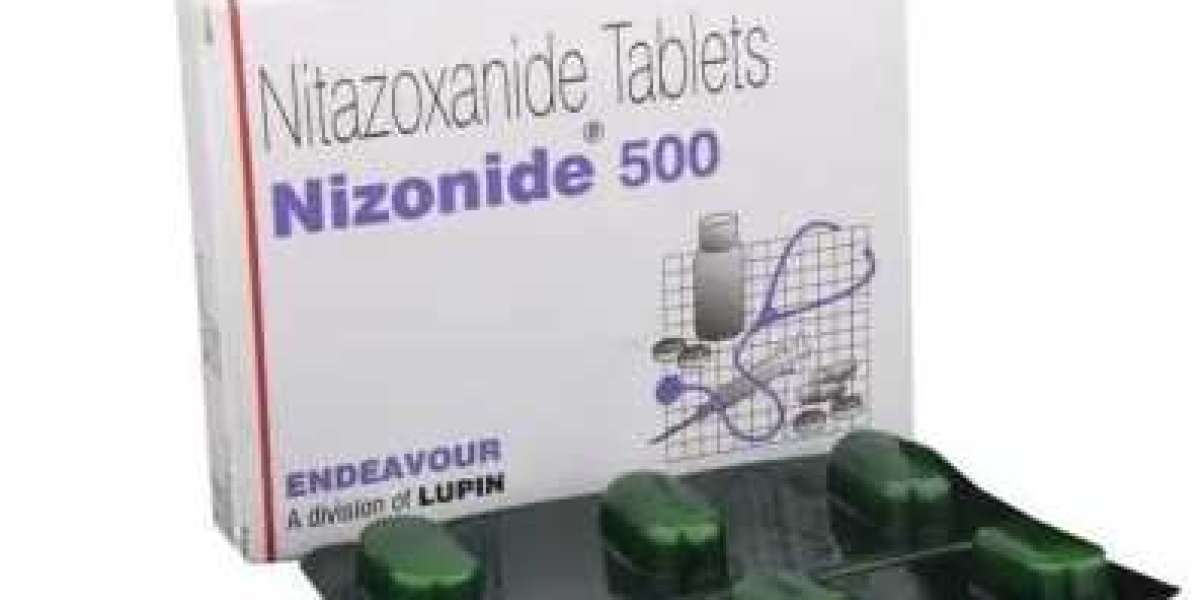Nitazoxanide 500 mg is a medication used to treat various parasitic infections, including cryptosporidiosis and giardiasis. However, like many medications, there are certain precautions and considerations to keep in mind to ensure its effectiveness and safety. One critical aspect to understand is what not to take with nitazoxanide to avoid potential interactions or adverse effects.
Understanding Nitazoxanide
Before delving into what not to take with Nizonide 500 , let's briefly understand what it is and how it works. Nitazoxanide is an antiparasitic agent that works by interfering with the energy metabolism of parasites, ultimately leading to their death. It is available in tablet form and is typically prescribed for infections caused by Cryptosporidium parvum and Giardia lamblia.
Drug Interactions to Avoid
- Antacids: Avoid taking nitazoxanide with antacids that contain aluminum, magnesium, or calcium. These compounds can bind to nitazoxanide, reducing its absorption and effectiveness. If you need to take an antacid, it's advisable to do so at least 2 hours before or after taking nitazoxanide.
- Erythromycin: Nitazoxanide may interact with erythromycin, an antibiotic used to treat bacterial infections. This combination can lead to an increased risk of adverse effects. It's essential to inform your healthcare provider if you are taking erythromycin or any other antibiotics.
- Antiretroviral Drugs: Individuals with HIV or other conditions requiring antiretroviral therapy should exercise caution when taking nitazoxanide. Some antiretroviral medications, such as ritonavir, may interact with nitazoxanide, potentially affecting drug levels in the body.
- Warfarin: Nitazoxanide may interact with warfarin, a blood thinner commonly used to prevent blood clots. This interaction can alter the effectiveness of warfarin, leading to either increased or decreased blood-thinning effects. Monitoring of blood clotting parameters is crucial if these drugs are used concomitantly.
- Metronidazole: Both nitazoxanide and metronidazole are used to treat parasitic infections. Using them together may increase the risk of neurological side effects. It's essential to follow your healthcare provider's advice if they prescribe these medications simultaneously.
- Alcohol: While not a direct drug interaction, consuming alcohol while taking nitazoxanide is generally not recommended. Alcohol can irritate the stomach and potentially worsen gastrointestinal side effects associated with nitazoxanide, such as nausea or stomach upset.
- Cimetidine: Cimetidine, a medication used to reduce stomach acid, may interact with nitazoxanide. This interaction can affect the absorption and efficacy of nitazoxanide. If you require both medications, your healthcare provider may adjust the timing of administration or recommend alternative options.
Safety Precautions and Consultation
It's crucial to consult your healthcare provider or pharmacist before starting nitazoxanide or any new medication. Provide a comprehensive list of all medications, including prescription drugs, over-the-counter medications, vitamins, and herbal supplements, to ensure there are no potential interactions.
Additionally, inform your healthcare provider about any medical conditions you have, especially liver or kidney problems, as these may influence the dosage and safety of nitazoxanide.
Follow the prescribed dosage and schedule strictly. Do not increase or decrease the dose without consulting your healthcare provider, as doing so can affect the treatment's effectiveness and safety.
Conclusion
Nitazoxanide is a valuable medication for treating parasitic infections, but it's essential to be aware of what not to take with it to avoid potential drug interactions and ensure optimal treatment outcomes. Always follow your healthcare provider's advice, disclose all medications and medical history, and seek clarification if you have any doubts or concerns about using nitazoxanide safely.



